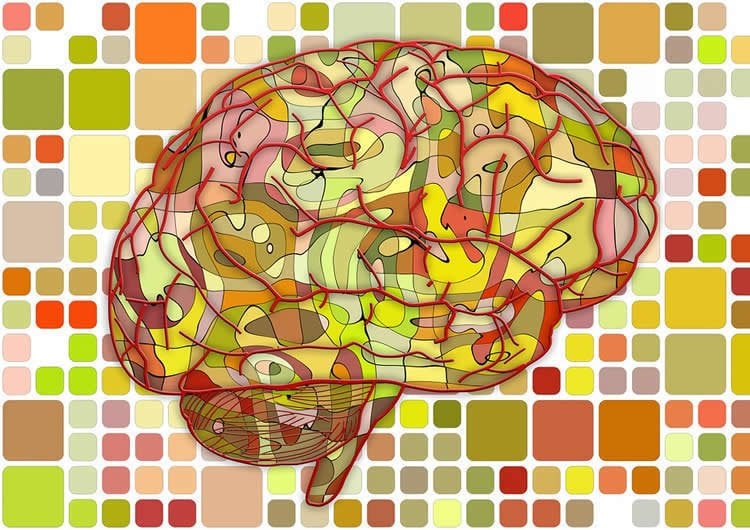Summary: Researchers report the brain is able to convert glucose into fructose.
Source: Yale.
Fructose, a form of sugar linked to obesity and diabetes, is converted in the human brain from glucose, according to a new Yale study. The finding raises questions about fructose’s effects on the brain and eating behavior.
The study was published on Feb. 23 by JCI Insight.
Fructose is a simple sugar found in fruits, vegetables, table sugar, and many processed foods. Excess consumption of fructose contributes to high blood sugar and chronic diseases like obesity. The Yale research team had demonstrated in a prior study that fructose and another simple sugar, glucose, had different effects on brain activity. But it was not known whether fructose was produced in the brain or crossed over from the bloodstream.
To investigate, the research team gave eight healthy, lean individuals infusions of glucose over a four-hour period. They measured sugar concentrations in the brains of the study participants using magnetic resonance spectroscopy, a noninvasive neuroimaging technique. Sugar concentrations in the blood were also assessed.
The researchers found cerebral fructose levels rose significantly in response to a glucose infusion, with minimal changes in fructose levels in the blood. They surmised that the high concentration of fructose in the brain was due to a metabolic pathway called the polyol pathway that converts glucose to fructose.
“In this study, we show for the first time that fructose can be produced in the human brain,” said first author Janice Hwang, M.D., assistant professor of medicine.
While the production of fructose in the brain had been seen in animals, it had not been demonstrated in humans, Hwang noted.

The finding raises several key research questions, which the research team plans to pursue. “By showing that fructose in the brain is not simply due to dietary consumption of fructose, we’ve shown fructose can be generated from any sugar you eat,” said Hwang. “It adds another dimension into understanding fructose’s effects on the brain.”
Glucose in the brain sends signals of fullness, but that is not the case with fructose, she said.
The conversion of glucose to fructose in the brain, known as the polyol pathway, also occurs in other parts of the body. “This pathway may be one other mechanism by which high blood sugar can exert its adverse effects,” Hwang added.
Other Yale authors are Lihong Jiang, Muhammad Hamza, Feng Dai, Renata Belfort-DeAguiar, Gary Cline, Douglas L. Rothman, Graeme Mason, and Robert S. Sherwin.
Funding: This study was supported in part by grants from the National Institutes of Health, and the Yale Center for Clinical Investigation supported by the Clinical Translational Science Award, as well as the Endocrine Fellows Foundation.
Source: Ziba Kashef – Yale
Image Source: NeuroscienceNews.com image is in the public domain.
Original Research: Full open access research for “The human brain produces fructose from glucose” by Janice J. Hwang, Lihong Jiang, Muhammad Hamza, Feng Dai, Renata Belfort-DeAguiar, Gary Cline, Douglas L. Rothman, Graeme Mason, and Robert S. Sherwin in JCI Insight. Published online February 23 2017 doi:10.1172/jci.insight.90508
[cbtabs][cbtab title=”MLA”]Yale “Fructose is Generated in the Human Brain.” NeuroscienceNews. NeuroscienceNews, 23 February 2017.
<https://neurosciencenews.com/fructose-brain-6146/>.[/cbtab][cbtab title=”APA”]Yale (2017, February 23). Fructose is Generated in the Human Brain. NeuroscienceNew. Retrieved February 23, 2017 from https://neurosciencenews.com/fructose-brain-6146/[/cbtab][cbtab title=”Chicago”]Yale “Fructose is Generated in the Human Brain.” https://neurosciencenews.com/fructose-brain-6146/ (accessed February 23, 2017).[/cbtab][/cbtabs]
Abstract
The human brain produces fructose from glucose
Fructose has been implicated in the pathogenesis of obesity and type 2 diabetes. In contrast to glucose, CNS delivery of fructose in rodents promotes feeding behavior. However, because circulating plasma fructose levels are exceedingly low, it remains unclear to what extent fructose crosses the blood-brain barrier to exert CNS effects. To determine whether fructose can be endogenously generated from glucose via the polyol pathway (glucose → sorbitol → fructose) in human brain, 8 healthy subjects (4 women/4 men; age, 28.8 ± 6.2 years; BMI, 23.4 ± 2.6; HbA1C, 4.9% ± 0.2%) underwent 1H magnetic resonance spectroscopy scanning to measure intracerebral glucose and fructose levels during a 4-hour hyperglycemic clamp (plasma glucose, 220 mg/dl). Using mixed-effects regression model analysis, intracerebral glucose rose significantly over time and differed from baseline at 20 to 230 minutes. Intracerebral fructose levels also rose over time, differing from baseline at 30 to 230 minutes. The changes in intracerebral fructose were related to changes in intracerebral glucose but not to plasma fructose levels. Our findings suggest that the polyol pathway contributes to endogenous CNS production of fructose and that the effects of fructose in the CNS may extend beyond its direct dietary consumption.
“The human brain produces fructose from glucose” by Janice J. Hwang, Lihong Jiang, Muhammad Hamza, Feng Dai, Renata Belfort-DeAguiar, Gary Cline, Douglas L. Rothman, Graeme Mason, and Robert S. Sherwin in JCI Insight. Published online February 23 2017 doi:10.1172/jci.insight.90508






